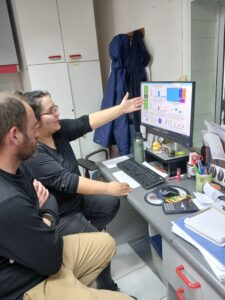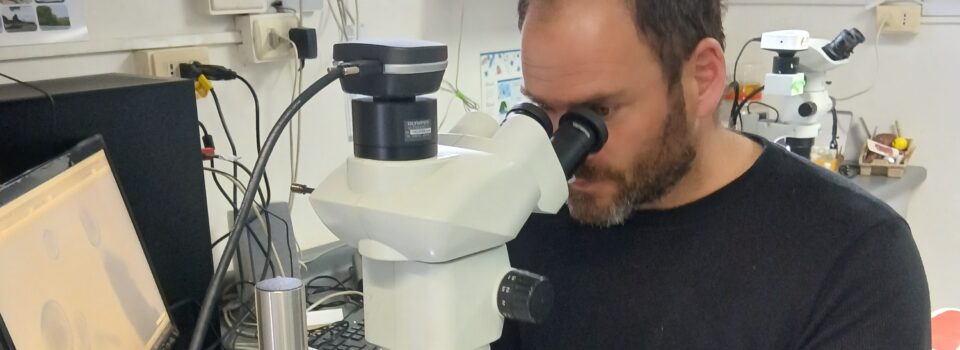IFOP collaborates with Argentine researcher to implement mussel aquaculture in Patagonia
November 4th, 2024 In order to promote the development of aquaculture, the Fisheries Development Institute (IFOP) has established a collaboration with Dr. Tomás Isola, researcher at the Coastal Development Institute of the National University of Patagonia San Juan Bosco, in Argentina. This alliance is part of the cooperation agreement with the Aquaculture Faculty of the Austral University of Chile.
In order to promote the development of aquaculture, the Fisheries Development Institute (IFOP) has established a collaboration with Dr. Tomás Isola, researcher at the Coastal Development Institute of the National University of Patagonia San Juan Bosco, in Argentina. This alliance is part of the cooperation agreement with the Aquaculture Faculty of the Austral University of Chile.
During the visit made from October 14 to 16, to the Puerto Montt Base, Dr. Isola and the IFOP team carried out a practical training focused on the identification of mussel larvae. Together, they worked on the identification of the three species of commercial mussels present in Chile in their different ontogenic stages, essential knowledge for the development of mussel aquaculture in the region.
The methodologies of the Mussel Larval Monitoring Program were also reviewed and the challenges and opportunities of the mussel farming industry in Chile, whose production depends on the capture of larvae in the wild, were addressed. One of the key objectives of this collaboration is to establish the bases for implementing a mussel aquaculture program in the Argentine Atlantic.
The training was led by the IFOP team, composed of researchers M.Sc. Cristina Stuardo and Macarena Herrera Abaroa, who were in charge of the instruction, including the use of the “Endemic Seed” Interactive Platform. Thanks to their guidance, the necessary technological transfer for the development of this activity in Argentina was facilitated, covering in detail the identification and analysis of larval stages.
This collaboration reinforces the exchange of knowledge between Chile and Argentina and represents a significant advance towards the sustainable development of aquaculture in Patagonia. By working together, both countries can share experiences and methodologies that facilitate the implementation of responsible aquaculture practices, benefiting both local communities and the environment. This synergy not only strengthens mussel production, but also creates a
